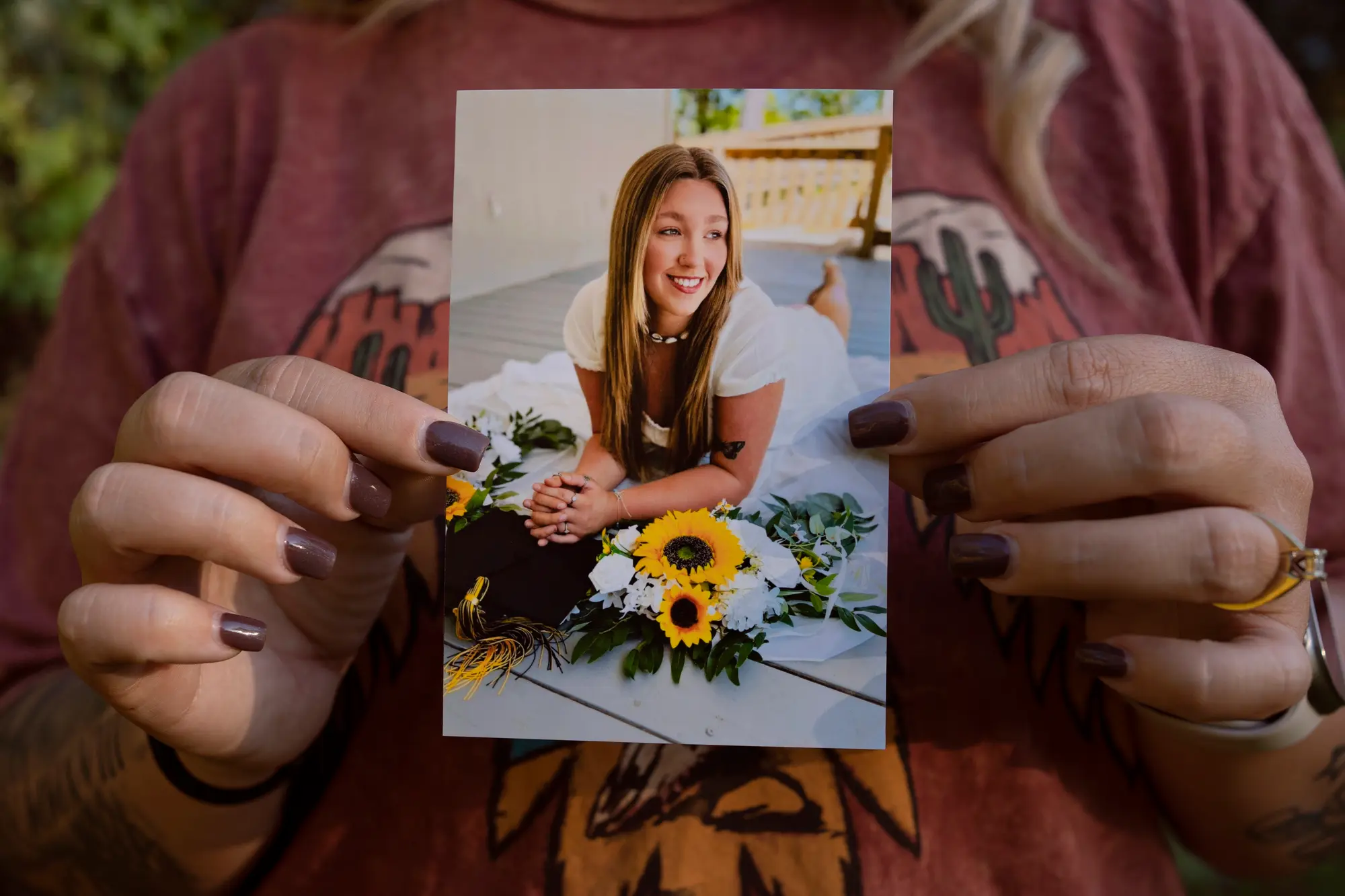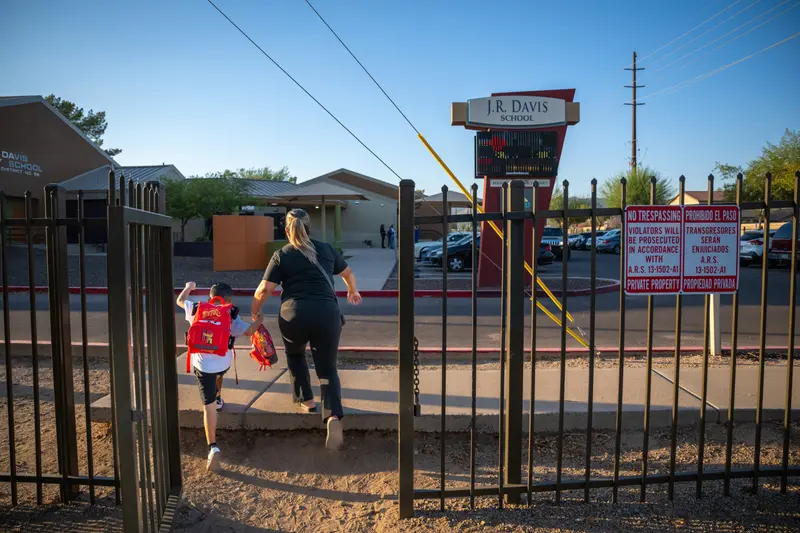A list of the most read ProPublica stories of 2024. Click on the story title to read the article.
Over the past year, as the 2024 election dominated headlines, ProPublica’s reporters and editors dove deeply into the issues atop many voters’ minds.
Kavitha Surana, Cassandra Jaramillo and Lizzie Presser uncovered the deaths of at least five women who weren’t able to access timely reproductive and medical care under abortion bans in Texas and Georgia. As part of our series examining new patterns of immigration, Melissa Sanchez and Maryam Jameel reported on what was happening in Whitewater, Wisconsin, as the city became a Republican talking point. Eli Hager and Lucas Waldron dug into why low-income families in Arizona weren’t using school vouchers as voucher supporters were pitching similar programs across the country.
That’s not all. Our reporters also spent months investigating other issues that touch readers’ lives, from the challenges of finding a mental health care provider who takes insurance to the human toll of the fentanyl crisis.
ProPublica reporters will continue this work in the new year as Donald Trump’s second administration takes shape. In the meantime, revisit ProPublica’s 25 most-read stories published in 2024, as measured by the total amount of time spent reading them across several of our publishing platforms.
1. The Year After a Denied Abortion
By Stacy Kranitz, special to ProPublica, and Kavitha Surana
Tennessee law prohibits women from having abortions in nearly all circumstances. But once the babies are here, the state provides little help. ProPublica followed Mayron Michelle Hollis and her family for a year as they struggled to make it.
2. “Eat What You Kill”
By J. David McSwane; co-published with Montana Free Press
Hailed as a savior upon his arrival at St. Peter’s Hospital in downtown Helena, Montana, Dr. Thomas C. Weiner became a favorite of patients and the hospital’s highest earner. As the myth surrounding the high-profile oncologist grew, so did the trail of patient harm and suspicious deaths.
3. Armed and Underground: Inside the Turbulent, Secret World of an American Militia
By Joshua Kaplan
Internal messages reveal how AP3, one of the largest U.S. militias, rose even as prosecutors pursued other paramilitary groups after the Jan. 6, 2021, assault on the Capitol.
4. How 3M Executives Convinced a Scientist the Forever Chemicals She Found in Human Blood Were Safe
By Sharon Lerner, photography by Haruka Sakaguchi, special to ProPublica; co-published with The New Yorker
Decades ago, Kris Hansen showed 3M that its PFAS chemicals were in people’s bodies. Her bosses halted her work. As the EPA took steps to force the removal of the chemicals from drinking water, she wrestled with the secrets that 3M kept from her and the world.

5. A Pregnant Teenager Died After Trying to Get Care in Three Visits to Texas Emergency Rooms
By Lizzie Presser and Kavitha Surana
It took three ER visits and 20 hours before a hospital admitted 18-year-old Nevaeh Crain as her condition worsened. Doctors insisted on two ultrasounds to confirm “fetal demise.” She’s one of at least three Texas women who died under the state’s abortion ban.
6. Multiple Trump Witnesses Have Received Significant Financial Benefits From His Businesses, Campaign
By Robert Faturechi, Justin Elliott and Alex Mierjeski
Witnesses in the various criminal cases against Donald Trump have gotten pay raises, new jobs and more. If any benefits were intended to influence testimony, that could be a crime.
7. “Not Medically Necessary”: Inside the Company Helping America’s Biggest Health Insurers Deny Coverage for Care
By T. Christian Miller, ProPublica; Patrick Rucker, The Capitol Forum; and David Armstrong, ProPublica
When companies like Aetna or UnitedHealthcare want to rein in costs, they turn to EviCore, whose business model depends on turning down payments for care recommended by doctors for their patients.
8. IRS Audit of Trump Could Cost Former President More Than $100 Million
By Paul Kiel, ProPublica, and Russ Buettner, The New York Times
The tax agency concluded in its long-running investigation that Donald Trump effectively claimed the same massive write-off twice on his failed Chicago tower.
9. A Woman Died After Being Told It Would Be a “Crime” to Intervene in Her Miscarriage at a Texas Hospital
By Cassandra Jaramillo and Kavitha Surana
Josseli Barnica is one of at least three pregnant Texas women who died after doctors delayed emergency care. She’d told her husband that the medical team said it couldn’t act until the fetal heartbeat stopped.
10. Abortion Bans Have Delayed Emergency Medical Care. In Georgia, Experts Say This Mother’s Death Was Preventable.
By Kavitha Surana
At least two women in Georgia died after they couldn’t access legal abortions and timely medical care in their state, ProPublica has found. This is one of their stories.
11. How Walmart’s Financial Services Became a Fraud Magnet
By Craig Silverman and Peter Elkind
Scammers have duped consumers out of more than $1 billion by exploiting Walmart’s lax security. The company has resisted taking responsibility while breaking promises to regulators and skimping on training.
12. He Was Convicted of Killing His Baby. The DA’s Office Says He’s Innocent, but That Might Not Be Enough.
By Pamela Colloff, photography by Stacy Kranitz; co-published with The New York Times Magazine
When new scientific evidence casts doubt on convictions, the justice system has no easy path to freedom — even when it’s the prosecutors doing the asking.
13. Trump’s Lawyers Told the Court That No One Would Give Him a Bond. Then He Got a Lifeline, but They Didn’t Tell the Judges.
By Robert Faturechi, Justin Elliott and Alex Mierjeski
An appeals court reduced Donald Trump’s bond by more than 60% after his attorneys claimed it was a “practical impossibility” to pay the full amount. Their failure to disclose a proposal from a billionaire financier may have violated ethics rules.
14. For the Women Who Accused the Trump Campaign of Harassment, It’s Been More Harassment
By Marilyn W. Thompson
Donald Trump is well known for publicly bullying his political rivals, but the president-elect’s campaign has also used similar tactics to launch private, relentless attacks against some of its own workers.
15. Inside the Historic Suit That the Gun Industry and Republicans Are on the Verge of Killing
By Vernal Coleman, photography by Sarahbeth Maney
For 25 years, gunmakers have repeatedly tried to end one city’s lawsuit over illegal gun sales. Meanwhile, illicit purchases of firearms continued at an unrelenting and hazardous pace.
16. Inside Ziklag, the Secret Organization of Wealthy Christians Trying to Sway the Election and Change the Country
By Andy Kroll, ProPublica, and Nick Surgey, Documented
The little-known charity is backed by famous conservative donors, including the families behind Hobby Lobby and Uline. It spent millions to make a big political push for the 2024 election — but it may have violated the law.

17. Maylia and Jack: A Story of Teens and Fentanyl
By Lizzie Presser; co-published with Teen Vogue
Police knew she was selling fake Percocet but did not stop her. His mother sought the right treatment for his addiction but could not find it. Two teens got caught up in a system unprepared to handle kids on either side of the drug trade.
18. Inside Project 2025’s Secret Training Videos
By Andy Kroll, ProPublica, and Nick Surgey, Documented
“Eradicate climate change references”; only talk to conservative media; don’t leave a paper trail for watchdogs to discover. In a series of never-before-published videos, Project 2025 detailed how a second Trump administration would operate.
19. What Happened in Whitewater
By Melissa Sanchez and Maryam Jameel, photography by Sofia Aldinio, special to ProPublica
Before Springfield, Ohio, became a flashpoint in the immigration debate, Trump and right-wing pundits exploited a police chief’s plea for resources to claim Whitewater was being subjected to an “invasion.” The truth turned out to be much more complicated.

20. Why I Left the Network
By Annie Waldman, Maya Miller, Duaa Eldeib and Max Blau, photography by Tony Luong, special to ProPublica, design by Zisiga Mukulu; co-published with NPR
Those who need therapy often have to pay out of pocket or go without care, even if they have health insurance. Hundreds of mental health providers told us they fled networks because insurers made their jobs impossible and their lives miserable.
21. An 11-Year-Old Denied Making a Threat and Was Allowed to Return to School. Tennessee Police Arrested Him Anyway.
By Aliyya Swaby, ProPublica, and Paige Pfleger, WPLN/Nashville Public Radio
A state law makes threats of mass violence at school a felony, even if they’re not credible. Judges and school officials say the law unnecessarily traumatizes kids.
22. Skipping School: America’s Hidden Education Crisis
By Alec MacGillis; co-published with The New Yorker
Absenteeism has nearly doubled since the pandemic. With state and federal governments largely abdicating any role in getting kids back into classrooms, some schools have turned to private companies for a reimagined version of the truant officer.

Credit: Ash Ponders, special to ProPublica
23. In a State With School Vouchers for All, Low-Income Families Aren’t Choosing to Use Them
By Eli Hager and Lucas Waldron
Working-class parents often express interest in vouchers. But in Arizona, the nation’s school choice capital, these families aren’t using them due to the inaccessibility of private schools and the costs of transportation, meals and uniforms.
24. Judge Aileen Cannon Failed to Disclose a Right-Wing Junket
By Marilyn W. Thompson and Alex Mierjeski
Aileen Cannon, whose oversight of the Donald Trump classified documents case garnered widespread criticism, has repeatedly violated a rule requiring that federal judges disclose their attendance at private seminars.
25. A Third Woman Died Under Texas’ Abortion Ban. Doctors Are Avoiding D&Cs and Reaching for Riskier Miscarriage Treatments.
By Lizzie Presser and Kavitha Surana
Thirty-five-year-old Porsha Ngumezi’s case raises questions about how abortion bans are pressuring doctors to avoid standard care even in straightforward miscarriages.
This article was originally published by ProPublica, and republished here under a Creative Commons license. Learn more about third-party content on ZanyProgressive.com.




